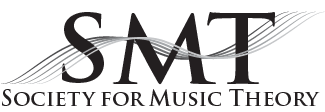Hello!
If you would like to participate in discussions, please sign in or register.
Categories
In this Discussion
- Zachary Cairns August 2015
- Marianne Kielian-Gilbert August 2015
Most Popular This Week
Dialog on Race: SMT in St. Louis
Hello all,
As I make preparations to attend what will surely be another dynamic SMT conference in St. Louis, I am also thoughtful.
I'm a relatively new transplant to the US, and I’ve been watching the ongoing events and 'national conversations' on race and racism in America with a bit of an outsider’s eye. My own institution has been engaging in many conversations around these topics, as events and activities on campus have forced us and our students to struggle with them in different ways. Increasingly, I’ve come to feel that it’s important for me to speak up, where I can and when I can, to help support those who are confronted with these issues in a very real (and often life-threatening, or life-ending) way in their lives.
Given our meeting’s proximity to Ferguson, one of the flash points for the current debate, and a place of ongoing challenges despite its current absence from headlines, I wondered if other members of the Society might be interested in taking some kind of action (while still conforming to the SMT's bylaws on politically neutral activities). I frankly don’t know what sort of action that might be. Some ideas:
some sort of pre-conference activity: an organized volunteering trip, a focused discussion or workshop on race/racism from a historical/contemporary lens. This might be too ambitious to organize at this late stage.
a discussion during the conference: perhaps an informal meeting time, either during sessions or during the breakfast, lunch, or dinner hours. A moderated discussion, workshop, or simply a place to voice opinions and ideas.
an ‘installation’ during the conference: Inspired by the “Clothesline Project” (http://www.clotheslineproject.org/), have a space for conference attendees to anonymously share their stories of race and racism. This would require some space and materials (either string, clothes pegs, paper and markers like the Clothesline Project; or simply paper, tape and markers to put stories on a wall)
a booth during the conference: set up in the publications room. I’m not sure what it would contain—it seems to me that providing information on the events in Ferguson would be difficult to keep politically neutral. But perhaps something could work.
Scholars for Social Responsibility IG: either reviving the group, or soliciting participation from its former members on this particular topic.
I thought I’d take the first step toward action by asking. I’d be happy to help brainstorm possible ‘actions’, and also assist with their implementation, if others want to consider. And of course, if you think this is entirely inappropriate for a music theory society to be discussing, that is also a valid response.
SMT Discuss Manager: smtdiscuss@societymusictheory.org

Comments
A dialogue is certainly worthwhile, and I'd also suggest that interested parties consider taking a drive (or public bus) to Ferguson for a lunch or dinner (or if you do decide to have a roundtable, maybe consider having it in Ferguson). The town could certainly use some economic support, and there are a number of rather nice places to spend some time. The Ferguson Brewing Company is a personal favorite -- good food, good drinks, and you can sample some Missouri beers that aren't Budweiser. They are currently closed due to a (non-riot related) fire in the kitchen, but should be open again by late October. The Cork Wine Bar is another fun place. And there's a really fantastic custard shop called the Whistle Stop, built in an old train station.
All potential points of departure: another thought I had in response would be to include the idea of some planning, interaction, and exchange with the SMT Committee on Diversity on developing points of contact (social, political, artistic) with communities in the urban areas where we hold our meetings.
How might it be possible to work with groups, or in the borders of particular social-geographical spaces, to broaden our encounters as academics in music theory, enabling us to have a glimpse of ourselves and how our practices are mutually implicated in particular social spaces? This glimpse, articulated in theory, analysis, and artistic practice, could also suggest new ways of construing the social-relational potential of music theory.
Over ten years ago in 2004 at the SMT and AMS conference in Seattle WA, Betsy Marvin and I convened an ad hoc meeting of “Scholars for Social Responsibility” with short position papers by Ralph Locke (“The Music Scholar’s Social Responsibility/ies”), Sumanth Gopinath (“Academic Labor Movements”), James Deaville (“Music and the Selling of the War on Iraq”), and Niccola Dibben (“Report on the Iraq Body Count Project”).
The idea was also to build on an earlier music-disciplinary initiative, namely, the Declaration by Scholars and Artists for International Democracy, formed by a steering committee and group of scholars affiliated through the International Music Perception and Cognition Conference held at Evanston IL in August 2004.
Though such initiatives are difficult to sustain, they can become particularly valuable when undertaken to cast light and shadows on what we do, in contrast with asserting how we, as members in an academic society, might have or claim some impact on a particular social political situation.